Lord’s Prayer Petition 5
Forgive us our sins as we forgive those that sin against us.
Is this how you see forgiveness:
http://www.sermonspice.com/product/16948/funny-forgiveness
(You don’t have to pay to preview this video.)
Or is it more like this:

Notice that our forgiveness is intimately linked to the forgiveness that we pass on to others.
The forgiveness that God already is prepared to issue for us is the same attitude we should have for others who anger, frustrate or hurt us. Our first inclination might be to call them names, hurt them, or stop communications, but Jesus shows us a more difficult and better way.
Surely, Jesus is the King of the Hill in the forgiveness department and no one is close to topping him, but there are many fine examples of Christians choosing forgiveness when the wisdom of the world cries out for vengeance and retribution.
How many can you think of? When were times that you were able to forgive? Are there people that you still need to forgive? If you use the other translation of debts and debtors: who do you owe or who owes you?
Colossians 3:13; Matthew 6:14-15; Luke 17:3-4; Ephesians 4:31-32; 1 John 1:9; Isaiah 43:25-26
Note of loving protection: accountability is still necessary and God requires us to be honest and transparent about our wrongs and those of others that are serious violations of God’s good and loving Way. Abuse is all forms requires treatment and separation from the innocent. Forgiveness should also not be requested so that harmful behaviors can just be repeated. Recognizing how costly it is for grace and forgiveness to be given is essential and we make it cheap and almost worthless when we just keep going on a willfully disobedient path.
Peace
Pastor Fitch


